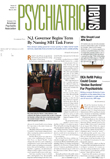More than half of American adults say they sleep badly most nights, and nearly 1 in 5 adults complains of feeling tired or fatigued every day, according to a nationwide poll conducted for the National Sleep Foundation (NSF) and released in March.
“Persistent trouble sleeping prompts complaints about mood, difficulty getting along with others and coping with daily hassles, and diminished work performance,” noted James Walsh, Ph.D., NSF chair and a clinical professor of psychiatry at St. Louis University in St. Louis, Mo.“ It erodes quality of life.”
The NSF poll's 1,506 respondents comprise a random sample of people aged 18 and over who live in the continental United States and completed a 20-minute telephone survey in late 2004. About 52 percent held full-time jobs, most on regular day shifts.
Half of employed adults reported having showed up late for work—or even missed work—because they overslept, did not feel rested in the morning, went to bed too late, or slept poorly. Many also reported being error-prone on the job.
Their sex life suffers, too. Two-thirds of respondents were married or living with someone. One-fourth said they have sex less often or have lost interest in sex because they feel too sleepy. One-third said their partner's snoring, kicking, frequent awakenings, or other sleep problems caused them to lose nearly an hour of slumber every night. About one-quarter sleep in a separate bed or another room, or use earplugs or an eye mask to help foster sleep.
The survey found American adults sleep 6.8 hours on average on weeknights, slightly less than the seven to nine hours sleep specialists generally recommend. Most try to catch up on days off, averaging 7.4 hours on weekends.
“If you build up a substantial sleep debt during the week, trying to catch up on weekends may be too little, too late,” Walsh observed.“ No one knows how much sleep you need to make up lost sleep or how fast you can do it.”
About 18 percent of survey respondents reported having been diagnosed with depression, and 12 percent said they had been diagnosed with anxiety disorders. More than 6 in 10 respondents overall said they had been diagnosed with at least one medical or psychiatric condition, the most common being hypertension (29 percent), arthritis (28 percent), or heartburn or gastroesophageal reflux disease (19 percent).
The majority of people with such disorders reported having at least one symptom of insomnia or other sleep problems at least a few nights a week. These people were more apt to sleep less than six hours a night than were people without such disorders. The ill group also attributed more relationship problems to their poor sleep.
Several studies show insomnia is a risk factor for subsequent depression, Walsh reported. “In people with depression who are between episodes, insomnia is a red flag,” he added. “Treating the insomnia may prevent emergence of depression.”
People who stay up later than they plan to or want to on weeknights often spend evenings on the Internet or doing work related to their job. Good sleepers, by contrast, often read, watch TV, spend time with family or friends, or take a hot bath or shower in the hour before going to bed.
Six in 10 adults reported having driven while drowsy, and 37 percent reported having nodded off at the wheel. About 4 percent had an accident or near miss because of dozing. Transportation experts say drowsy driving causes at least 1,550 fatalities in the United States each year, according to the NSF Web site<
http://drowsydriving.org>.
About two-thirds of poll respondents reported being overweight or obese, consistent with other recent national surveys. Sleeping too little may prompt overeating, according to research findings published in the last few years. Obese respondents were more apt than those of average weight to sleep less than six hours on weekdays, have a higher risk of developing sleep-related breathing disorders, feel sleepy in the day-time at least three days a week, and describe troubled intimate relationships. Long work hours, shift work or night work, and high caffeine consumption also figured in their sleep woes.
Poll respondents who reported sleeping well every night or almost every night—about half the total—included people at both ends of the age spectrum.
Younger good sleepers—age 45 on average—go to bed early, fall asleep quickly without sleep aids, get up early, and said they get as much sleep as they need to feel and function at their best. Most said they have no health problems.
Older good sleepers—age 60 on average—often are retired or work part time. While some have a diagnosed medical condition, few reported a constellation of symptoms suggesting a sleep disorder. This group got the most sleep of all poll respondents, 7.3 hours on average. Nearly half reported napping twice a week. Few reported missing events or activities because of feeling too sleepy, and they were the least likely respondents to report having driven while drowsy.
The complete 2005 poll results are posted online at the NSF's Web site at<www.sleepfoundation.org/hottopics/index.php?secid=16&id=245>. Elsewhere on the site are an interactive one- or two-week sleep diary and information for both the public and physicians. ▪
